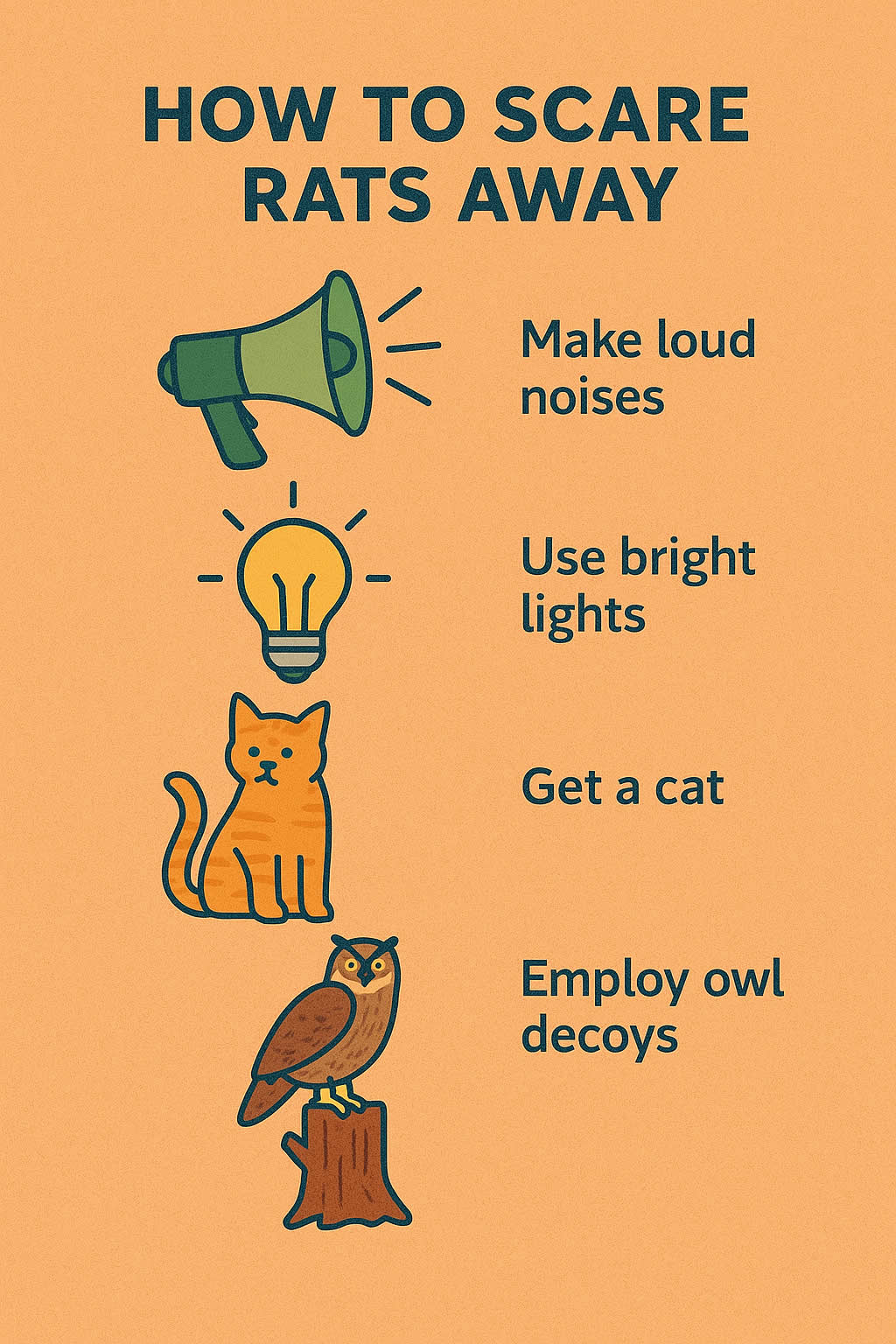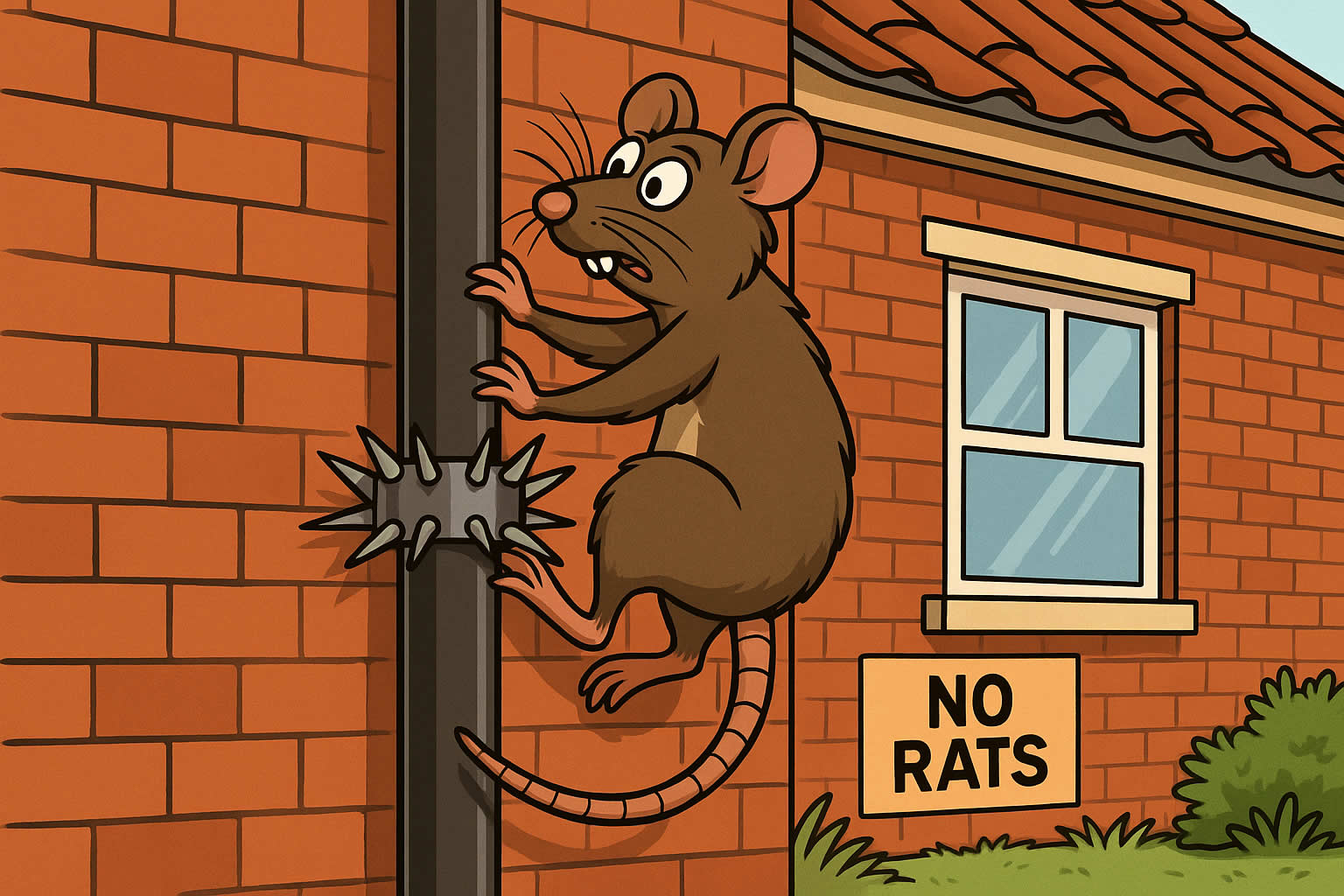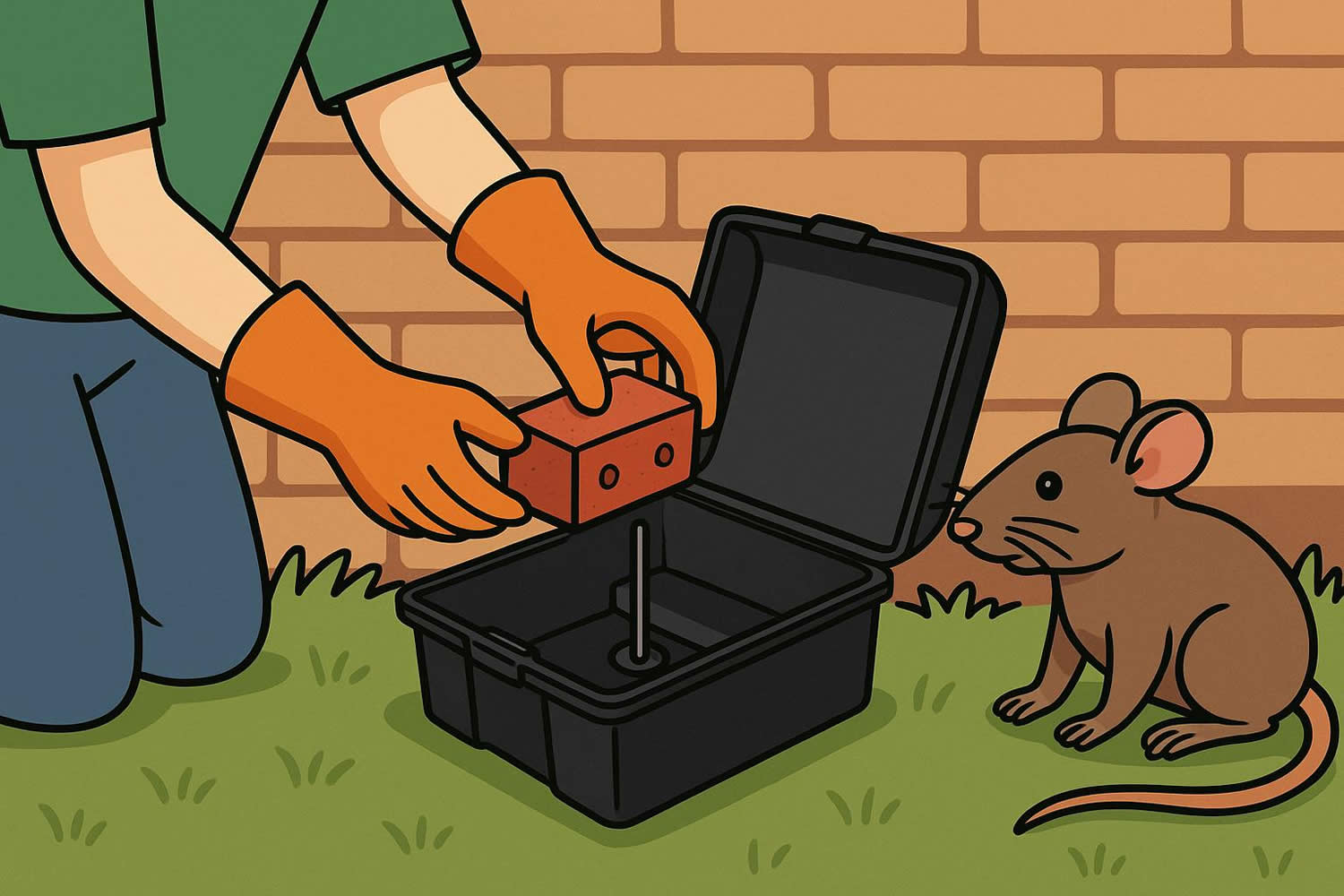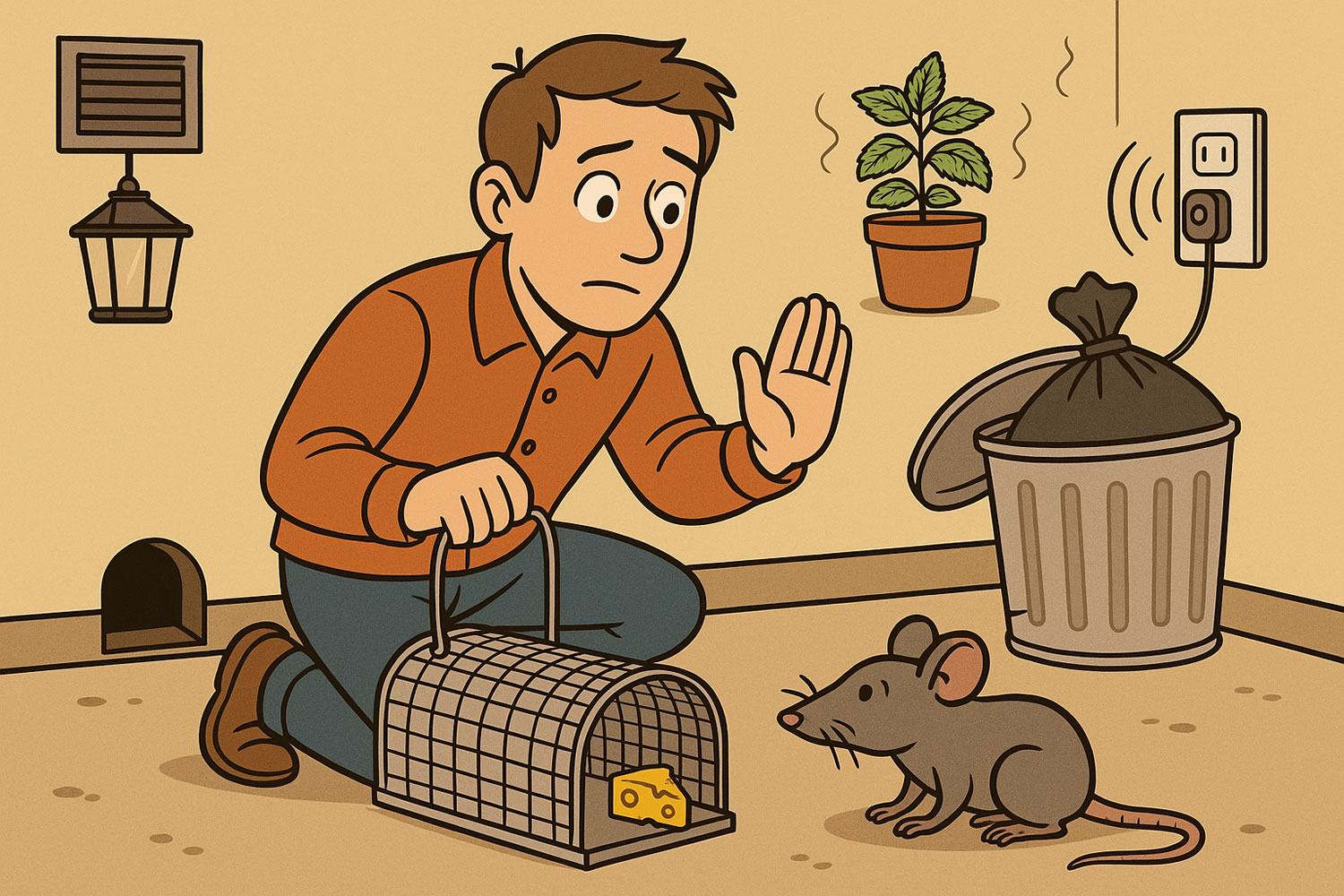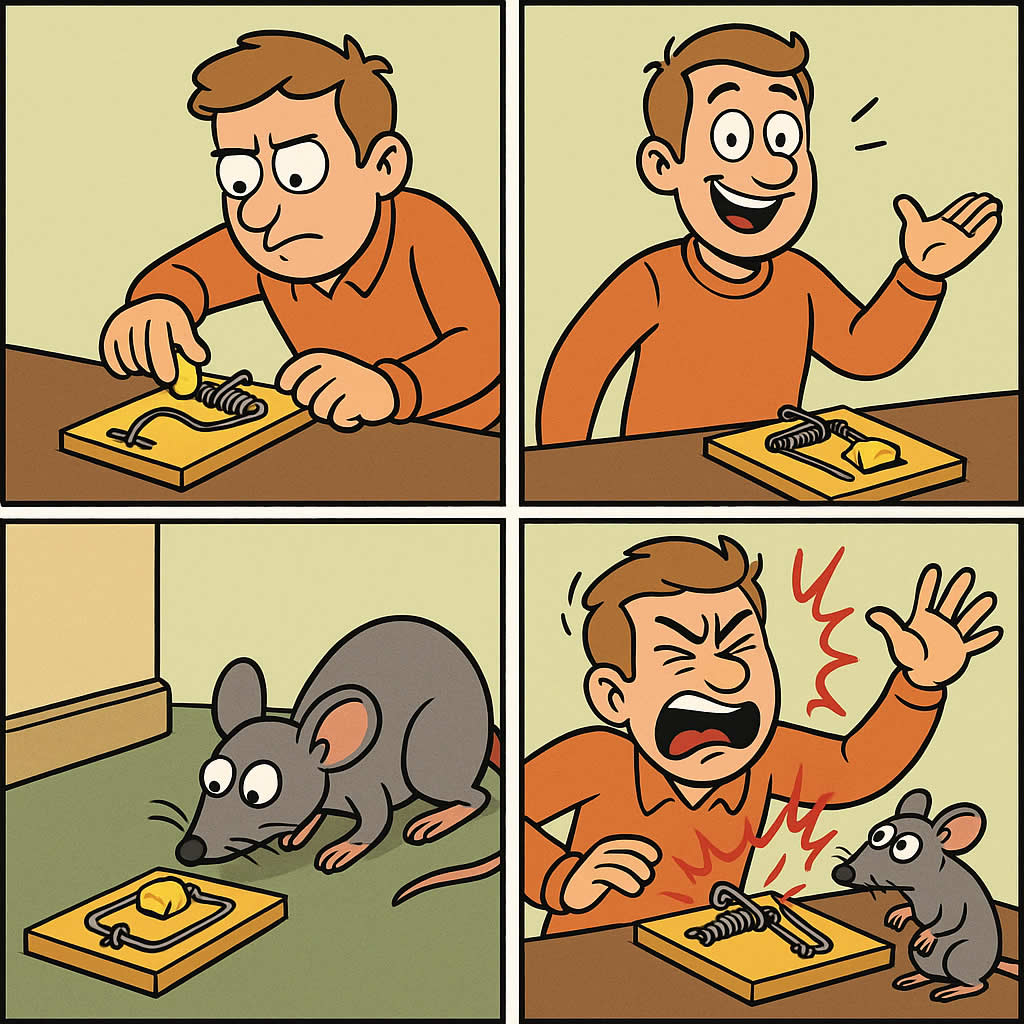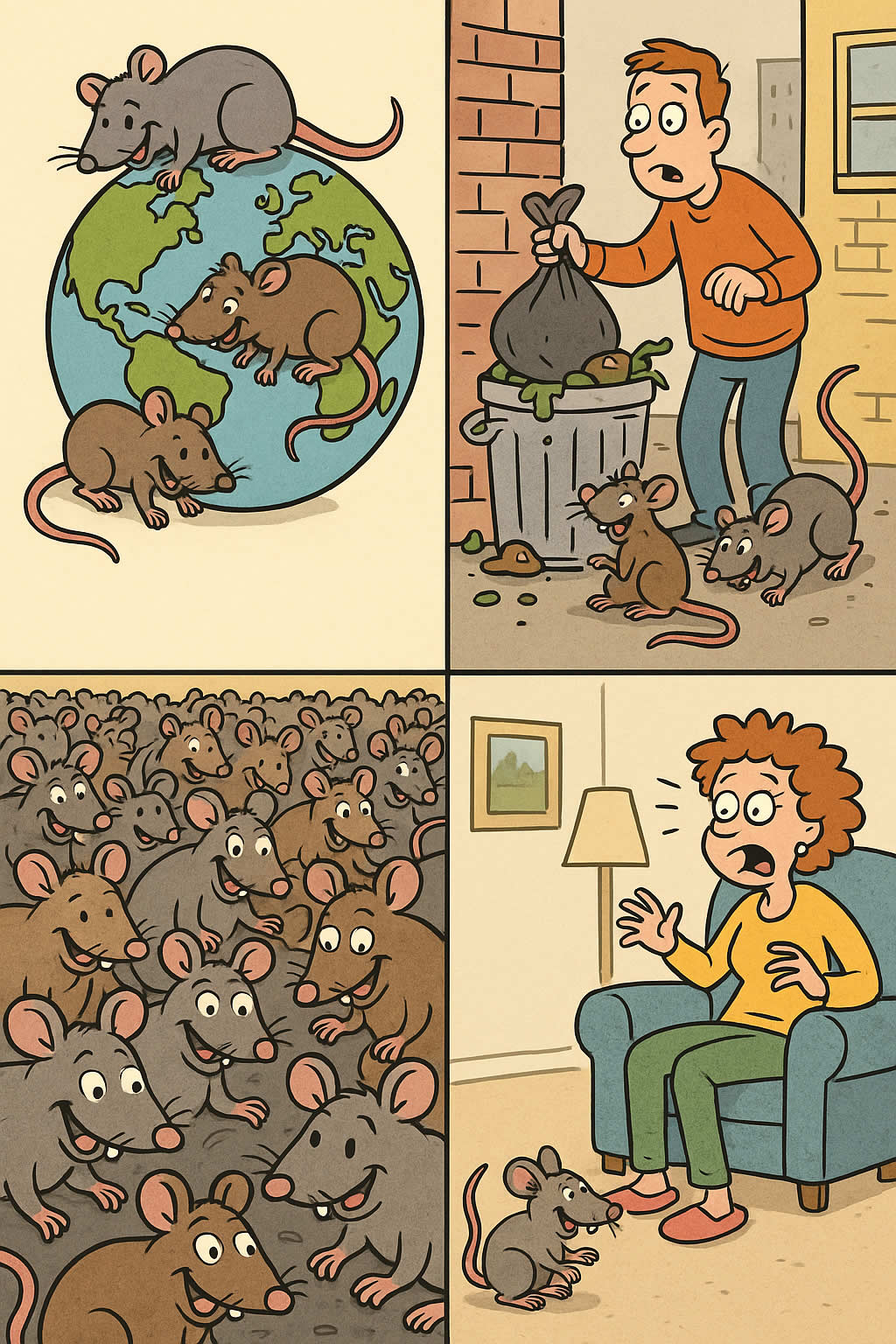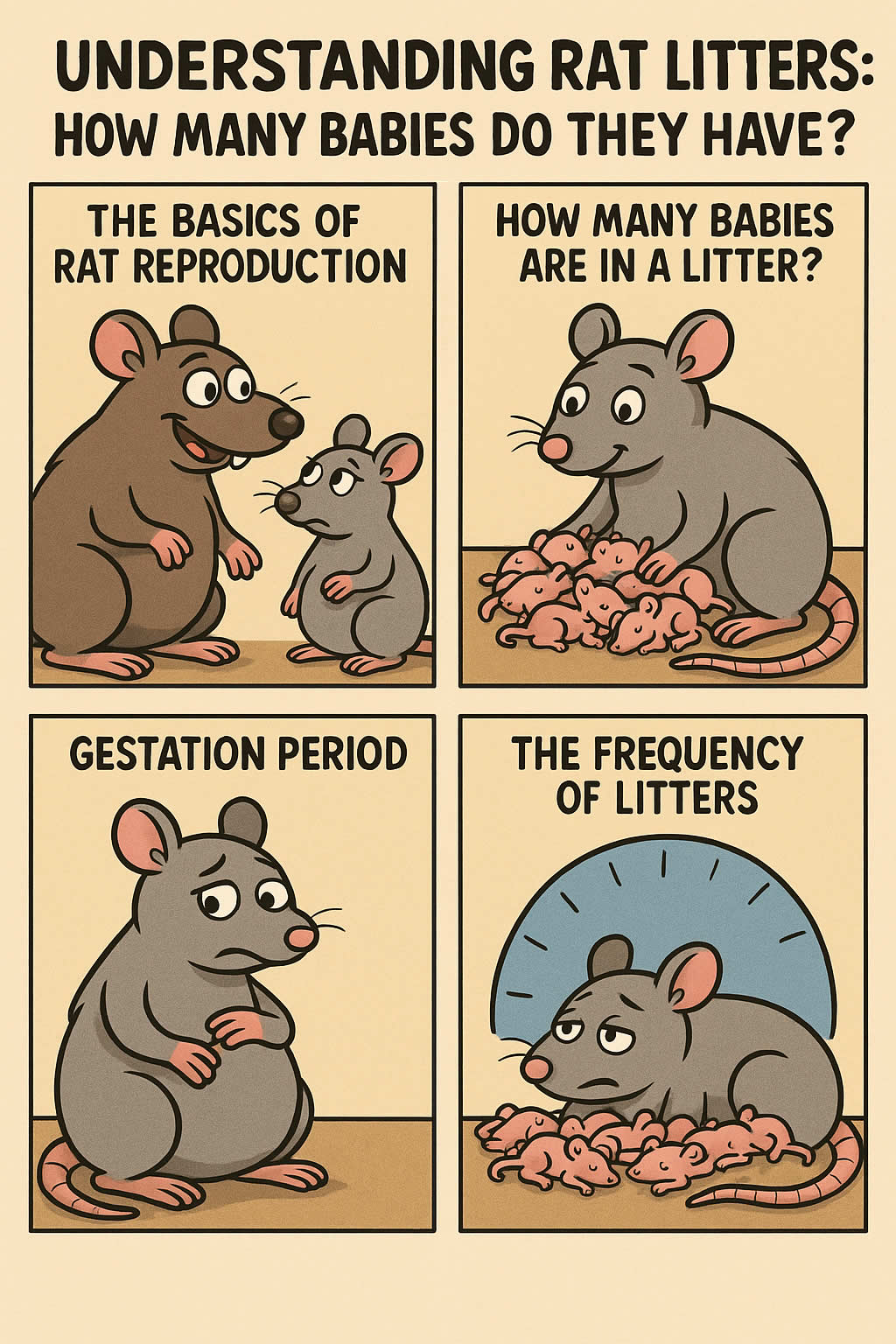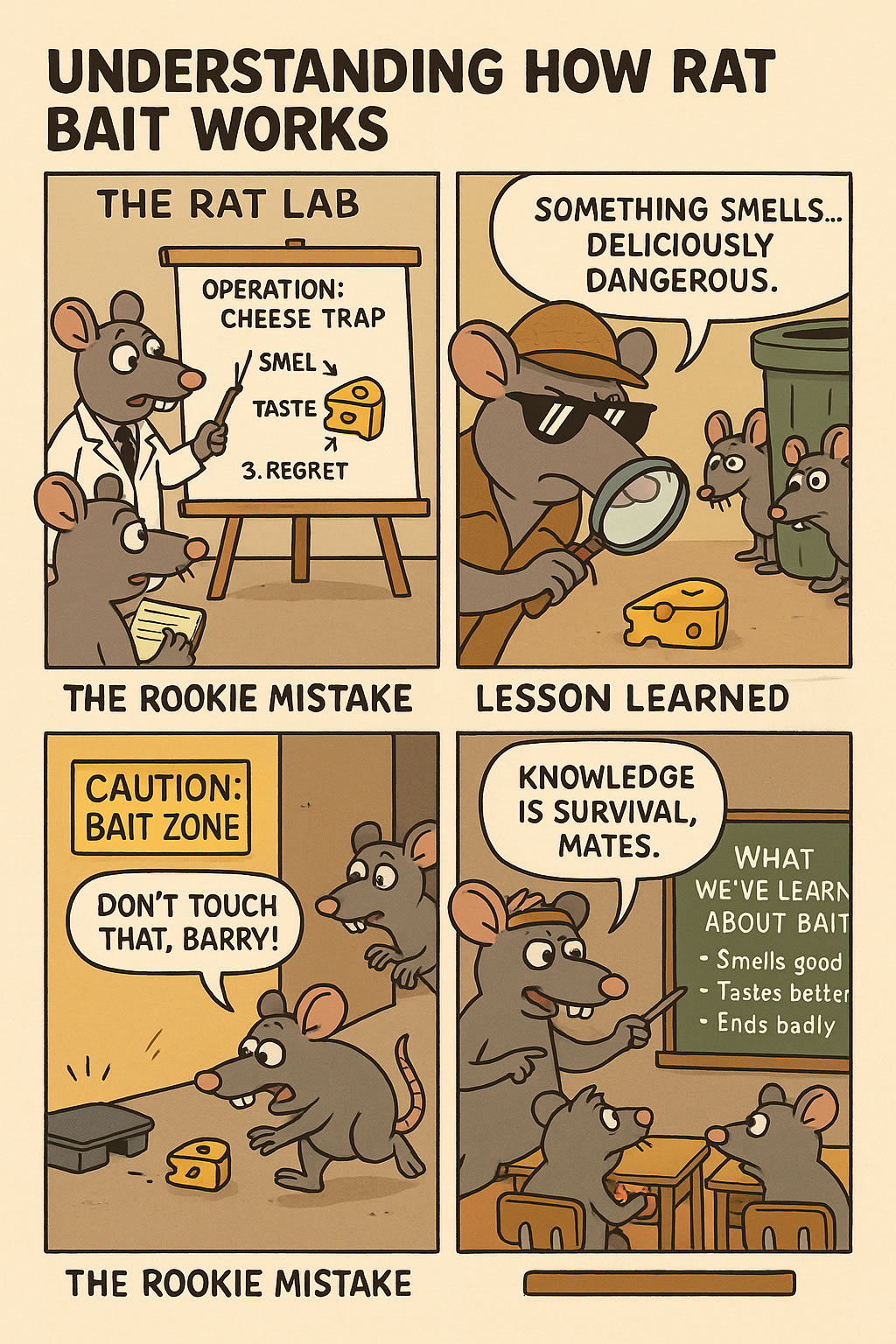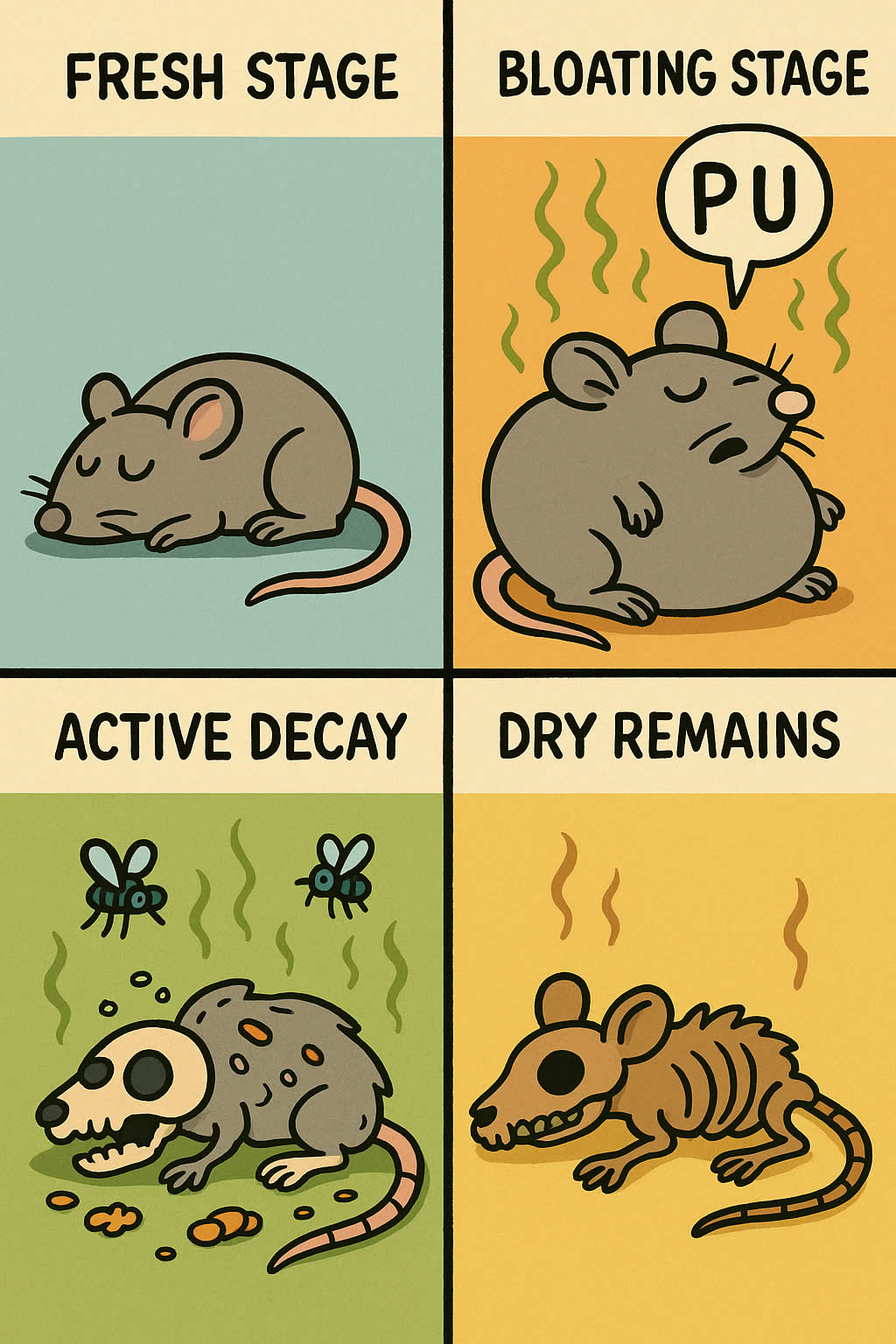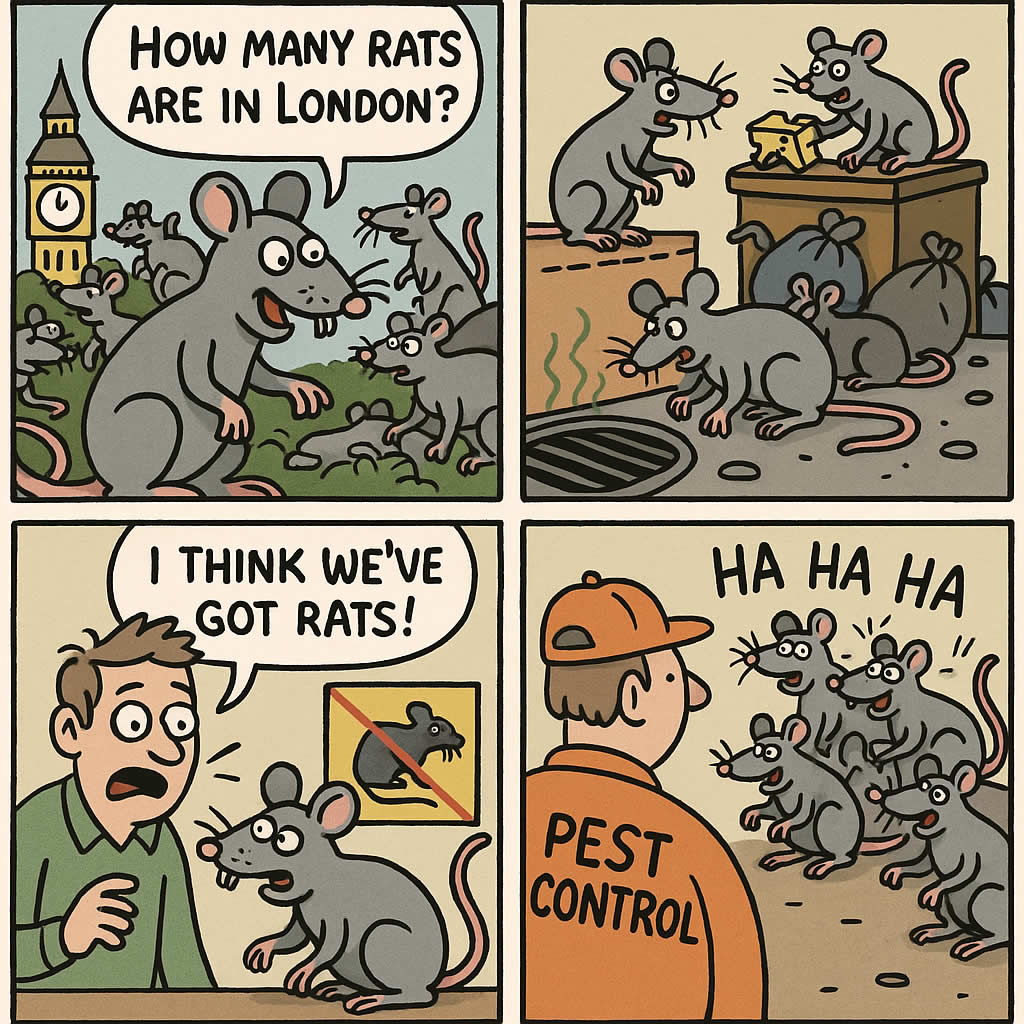Related Queries
ToggleHave you recently noticed signs of rats invading your home? Well, rats are one of the most common pests that invade homes, especially during the colder months. They can be difficult to eradicate and can cause damage to your property. Rats can also carry diseases, which makes it crucial to get rid of them as soon as possible.
Rats are known for being resourceful and adaptable creatures, which can make them difficult to get rid of. However, there are a number of effective ways to scare rats away and deter them from entering your home.
Rats are intelligent animals that can be trained, but not domesticated. Rats & mice live in groups called colonies, which may include hundreds of rats. Rats communicate with each other using sound, scent and touch. Rats usually become accustomed to human activity if it does not interfere with their daily routines or food supply. They may even become accustomed to seeing people in the house if they do not feel threatened or disturbed by their presence.
If you have a rat problem in your home or yard, you will need to take steps to prevent rats from returning. Consider these suggestions:
How To Scare Rats Away
Rats, renowned for their resourcefulness and adaptability, can pose a challenge when it comes to eradication. Fear not, for there exist numerous effective methods to scare these critters away and discourage their unwelcome intrusion into the sanctuary of your home. From implementing natural deterrents to employing humane traps, you can safeguard your living space and maintain a rat-free environment effortlessly.
Eliminate Food Sources
Rats are primarily attracted to food, so the first step in preventing them from entering your home is to eliminate any potential food sources. This includes keeping your kitchen and pantry clean, storing food in airtight containers, and removing any pet food or garbage from outdoors.
Rats can also be attracted by the smell of certain foods, so if you have an infestation problem, it’s best to keep your kitchen free of strong smells like spices, onions and garlic.
You should also keep all of your garbage cans in a locked shed or garage if possible. If you must keep them outdoors, make sure they are sealed tightly with a lid. Rats can also chew through plastic bags, so make sure that bagged trash is put into a sturdy container before being disposed of outside.
You should also avoid leaving pet food out overnight and clean up after your pets immediately after they eat. Rats love dog feces, so keeping dog feces picked up is one way to protect yourself from rats.
Seal Up Entry Points
Rats can squeeze through very small openings, so it is important to seal up any cracks or holes in your home’s exterior, such as around the foundation, windows, and doors. You can use caulk, weather stripping, or metal flashing to seal these gaps.
You should also consider sealing up any openings under your house and in utility areas where rats may enter from the ground.
If you have a crawl space or attic that rats could use as a nesting area, it is important to make sure there are no holes in the walls or ceiling for them to enter. You can use caulk or wire mesh to plug up holes in the walls and ceiling.
Use Normal Rat Repellents
There are a number of natural and synthetic repellents that can be used to deter rats. These products often contain strong smells that rats find unpleasant, such as peppermint oil, mothballs, or predator urine. You can spray repellents around potential entry points, along baseboards and in attics or crawl spaces.
Peppermint Oil: The smell of peppermint oil is unpleasant to rats, so this product is an effective rat repellent. The smell dissipates after a few days, making it ideal for outdoor use.
Mothballs: Mothballs are another natural rat repellent that can be used outdoors or indoors. They have an unpleasant smell that most mammals find irritating. Mothballs are poisonous if ingested, so keep them out of reach of pets and children.
Use Natural Rat Repellents
Natural rat repellents are a great alternative to traditional pest control methods. While they won’t solve all of your problems, they can help you to deter rats from entering your home and causing damage.
Natural repellents can be effective in scaring rats away from your home. You can also use garlic, onions, or ammonia, as they all have a pungent smell that rats can’t stand. Place these repellents near entry points as a deterrent.
If you want to get rid of an infestation, try using natural oils and herbs that repel rodents from entering your home. Rats do not like strong smells such as lavender because these scents remind them of predators like cats or owls. You can use these plants around your house or garden to keep rats away from eating them or destroying other plants in your yard.
Set Rat Traps
If the rats persist despite all your efforts, it’s time to set traps. Snap traps are traditional and effective, and they’re easy to use. However, if you’re not comfortable using them, you can use humane traps that catch the rats inside without harming them. Alternatively, you can use electronic traps that kill the rats instantly. Once you’ve caught the rats, dispose of them appropriately.
Traps are a more direct way to eliminate rats. There are a variety of traps available, including live traps, snap traps, and electronic traps. Live traps are the most humane option, as they allow you to relocate the rats to a different location. Snap traps and electronic traps are more effective at killing rats, but they may be more difficult to use humanely.
Remove Clutter
Rats are attracted to cluttered areas and places that offer hiding spots. Therefore, it’s essential to declutter your home and remove anything that could offer shelter. Start by removing any boxes, piles of clothes, or newspapers that have been lying around for a while. Also, pay attention to the outside of your home and remove any piles of wood, rocks, or debris.
Rats like to hide in dark places like crawl spaces and basements. If you have a basement or crawl space in your home, make sure it’s well lit with plenty of light fixtures. Rats will often hide in these areas during the day and come out at night when they’re more active.
In order to keep rats away from your home, you need to declutter. Start by removing any boxes, piles of clothes, or newspapers that have been lying around for a while. Also, pay attention to the outside of your home and remove any piles of wood, rocks, or debris.
Block Access
One of the best ways to scare rats away from your home is by blocking their access points. Check for gaps or holes in your walls or foundation, and seal them using a caulking gun or expanding foam. You can also use steel wool or wire mesh to close openings around pipes, vents, and electrical wires. These materials make it difficult for rats to chew through and enter your home.
If you have an attic or basement, look for holes where rats may be entering your house through the roof or foundation. Use caulk or wire mesh to fill these holes so that they cannot be accessed by rodents looking for shelter inside your home
Rats like dark places where they cannot be seen by predators such as cats and humans. If you want to keep rats out of certain areas of your home, consider using motion-sensor lights outside at night.
Scare devices
One effective method to deter rats from invading your home is by utilizing scare devices. These can include ultrasonic pest repellents, which emit high-frequency sounds that are unpleasant for rodents. Additionally, incorporating flashing lights and loud noises, such as air horns or music boxes playing at random intervals during the night, can further discourage rats from entering your property.
Another preventive measure is the strategic placement of dried blood meal around your home or yard. Rats have an aversion to the smell of dried blood meal, causing them to avoid areas where it has been sprinkled.
Sound devices
Sound devices are a type of pest control device that emit loud noises when animals approach them. They can be effective at scaring rats away from your home because they tend to fear loud noises. However, sound devices don’t always keep rodents away permanently because they eventually become immune to them after repeated exposure. The good news is that sound devices don’t require any maintenance or installation work and are relatively inexpensive compared with other methods of pest control such as poison baits and traps.
How Sound Devices Work
Sound devices emit ultrasonic waves that are inaudible to humans but can frighten away pests like rats and mice. These waves are created by piezoelectric transducers, which convert electrical energy into mechanical energy. The vibration produced by these transducers causes the air around them to vibrate as well, producing a high-pitched noise that only rodents can hear.
Sound devices come in two types: those with a single ultrasonic frequency and those with multiple frequencies. Single-frequency devices produce louder sounds than multi-frequency ones, but the latter may be more effective at deterring rodents since they emit a wider range of frequencies that cover more sound ranges than one single frequency does.
Buy a Cat
If you have a cat, it may seem like an obvious solution to keeping rats away. However, this only works if the cat is allowed to roam freely outside and actively hunt for rats. Cats, being natural predators of rats, possess the innate hunting instincts that make them effective in controlling the rodent population. By honing their hunting skills, cats can become efficient rat catchers.
However, if your cat is indoor-only, then you’ll need to explore alternative methods to prevent the rats from returning. Indoor cats may not have the same opportunities to encounter and deter rats as their outdoor counterparts. Therefore, implementing additional measures like sealing entry points, using deterrents, or seeking professional pest control assistance may be necessary to address the rat issue effectively.
Remember, while cats can be trained to hunt rats, their effectiveness as rat deterrents may vary depending on various factors such as the cat’s hunting instincts, age, and overall health.
Consider Professional Pest Control
If you are unable to get rid of rats on your own, or if you have a severe infestation, you may want to consider hiring a professional pest control company. They will be able to assess the situation and recommend the most effective treatment plan. Pest control services have the expertise, equipment, and materials to eradicate rats from your home effectively. They can also provide advice on how to prevent future infestations.
Here are some additional tips for scaring rats away:
- Use ultrasonic devices that produce high-frequency sounds that are unpleasant to rats but inaudible to humans.
- Place mothballs in areas where rats are likely to congregate.
- Sprinkle pepper flakes along baseboards and entry points.
- Hang wind chimes or other noisy objects in areas where rats are active.
By following these simple steps, you can effectively keep rats away from your home and prevent them from becoming a nuisance. One of the first things you can do is ensure that all potential entry points, such as cracks and holes, are properly sealed. Additionally, keeping your living space clean and organized helps to eliminate potential sources of food and shelter for rats.
Regularly disposing of trash and maintaining a tidy environment goes a long way in deterring these unwelcome visitors. Lastly, consider using rat deterrents or traps strategically placed in areas where rats are likely to be present. By implementing these measures, you can create a rat-resistant environment and enjoy a pest-free home.
Conclusion
Rats can cause damage to your property, carry diseases, and pose a risk to you and your family’s health. Therefore, it’s crucial to take steps to scare them away from your home. By decluttering, blocking access points, using natural repellents, setting traps, and calling in a professional, you can get rid of rats effectively. Remember, prevention is always better than cure, so it’s essential to keep your home clean and tidy and address any potential entry points early.os. Work to make your home as unappealing to rats as possible.
Pest Control Honeydon – Pest Control Greater Manchester – Pest Control Dorset
